
As we move into 2025 and prepare for planting, think carefully about what you can do to set your soil up for a successful harvest. It should start with soil structure, fertility and nutrition. For me, soil testing is absolutely crucial to making good planting decisions – too much and you are wasting money – […]
Read More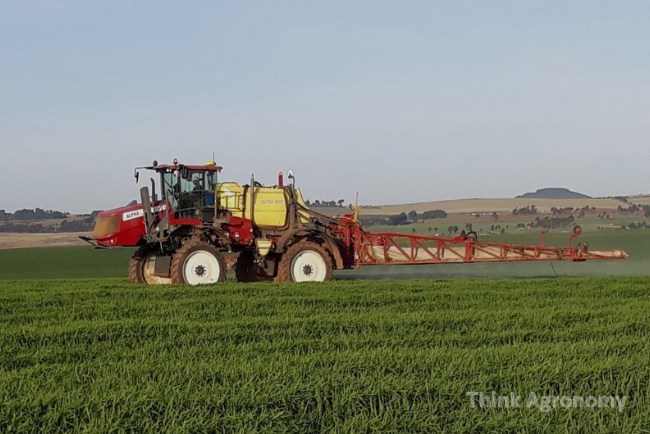
We often focus extensively on grassweed control in cereals, but on many farms – particularly where cereals have been grown year on year – many broadleaved weeds are becoming challenging and robbing us of yield and quality. Thankfully there are many options available so rotating chemistry, if not rotating crops, can be part of the […]
Read More
We have no excuses. East Africa has produced world-record crops of barley in recent years and coming out of a wet season with a full profile of soil moisture, into a dry and bright finish in January and February, the potential this year is enormous on farms that have taken the long view and found […]
Read More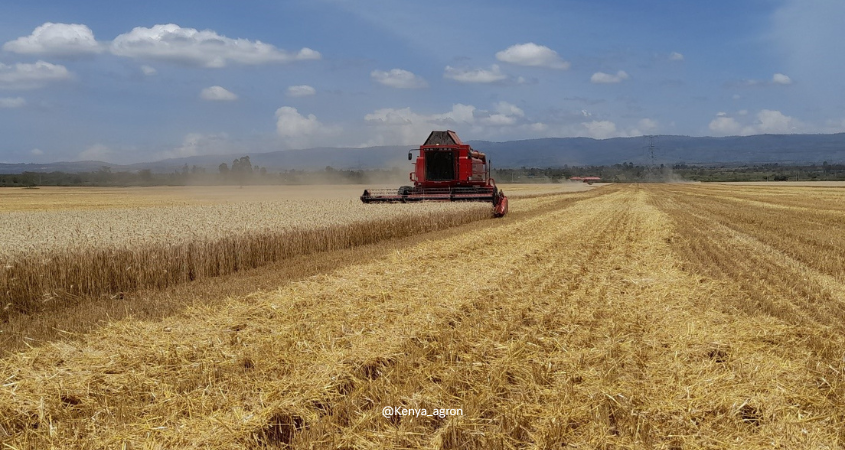
This will be a harvest that is unfortunately remembered for many years to come, for pre-harvest sprouting in wheat. We can’t say we couldn’t have seen it coming after a run of fairly easy, dry harvests but what is different about this harvest is that we have generally moved away from the highest-risk varieties like […]
Read More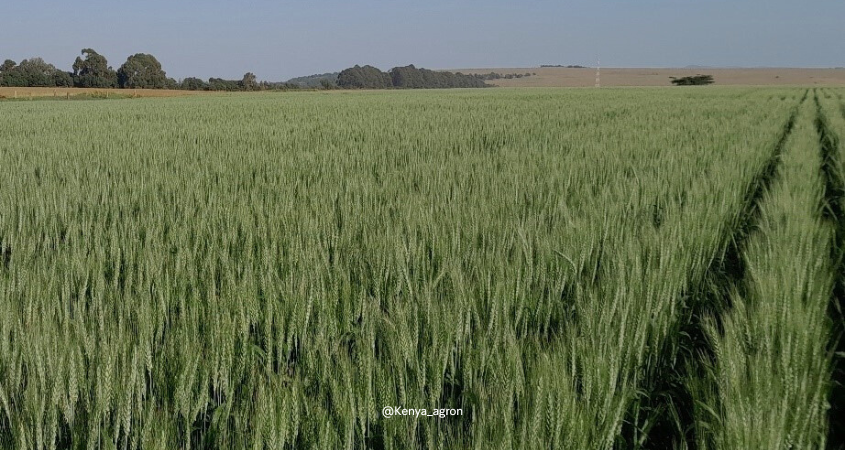
Think Agronomy Newsletter – July 2024 Having recently completed an exercise comparing wheat production costs and gross margins on clients’ farms, it is clear that there are a lot of improvements we can make by learning from each other. Variable costs alone have risen by around 65% in the past five years so it is […]
Read More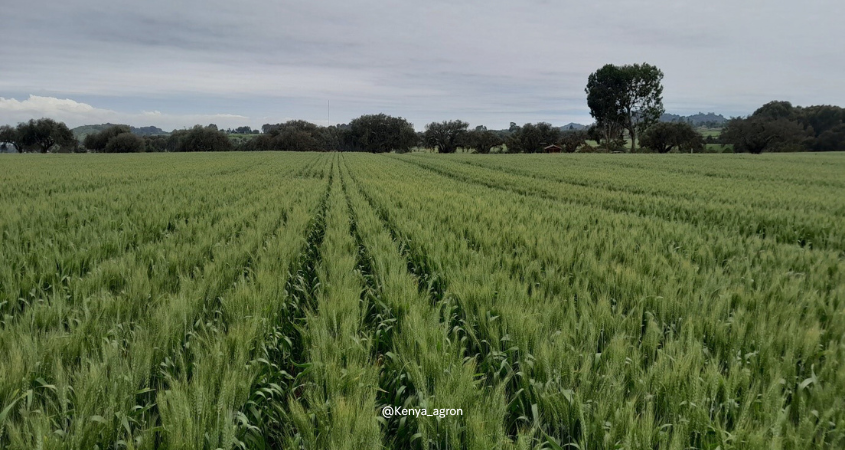
Think Agronomy Newsletter – June 2024 Growing a big crop that looks really promising… in a season with good rainfall… until those tell-tale white bleached ears appear when you are on the home straight. There is nothing more soul-destroying than seeing a great crop become heavily infected with Fusarium. Yield alone will be damaged, but […]
Read More
Think Agronomy Newsletter – May 2024 With good rain around there is a lot of potential in maize crops, so pushing them to reach their potential makes a lot of sense. Topdressing is one of those inputs that can really make a big difference to yields, with the addition of nitrogen raising yields by another […]
Read More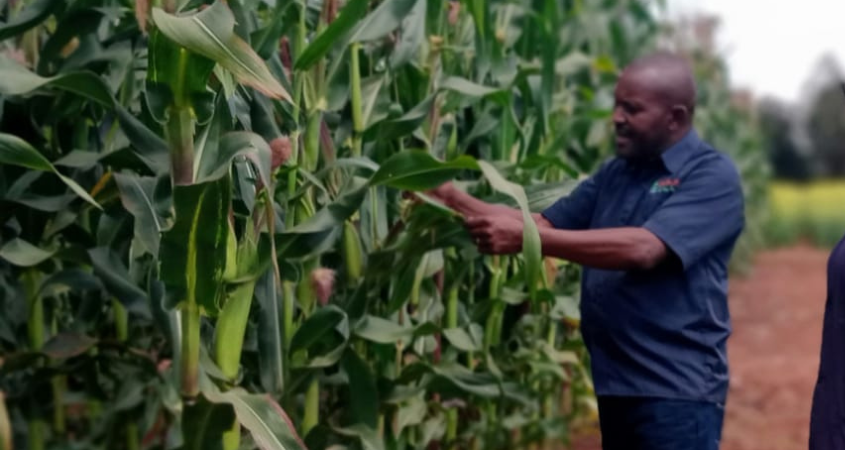
Think Agronomy Newsletter – Updated on Wednesday, 13th March 2024 Visiting the agrovets presents a bewildering choice at this time of year, as that all-important decision around which maize seed to plant comes closer. We take a look at some of the options available for 2024 for high and mid-altitude areas. Highland The choices for […]
Read More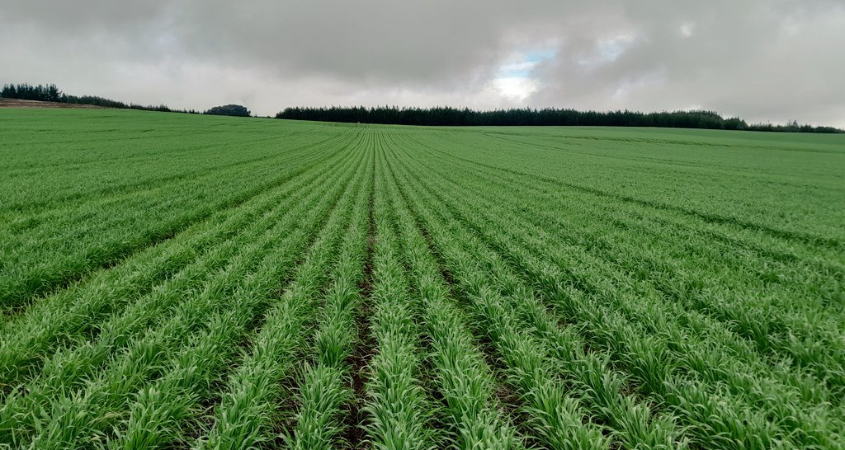
You have chosen your favourite variety, prepared the soil and are ready to plant. Hopefully you have examined the soil structure and taken action to remedy any compaction or structural issues, now you just need to load the planter with seed…. and fertiliser. One of the most important things you can do is take a […]
Read More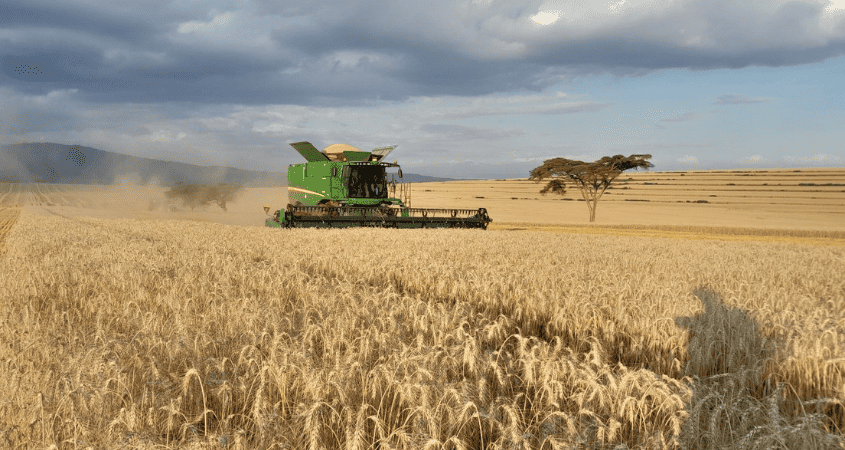
The arrival of a new fungicide that has passed ever-stricter safety and environmental scrutiny, and improves the standard of disease control in crops is always big news. Newly launched fungicide Elatus Arc from Syngenta appears at a time when registering new chemistry is becoming increasingly challenging globally, and resistance to fungicides is developing at an […]
Read More
Maize silage is possibly the number one choice for high-yielding dairy cows, with high energy content and high intakes. But what makes a good forage maize variety? After six trials we have found large and consistent differences in yield and feed quality between various hybrids, which should help farmers choose more suitable varieties for high-performing […]
Read More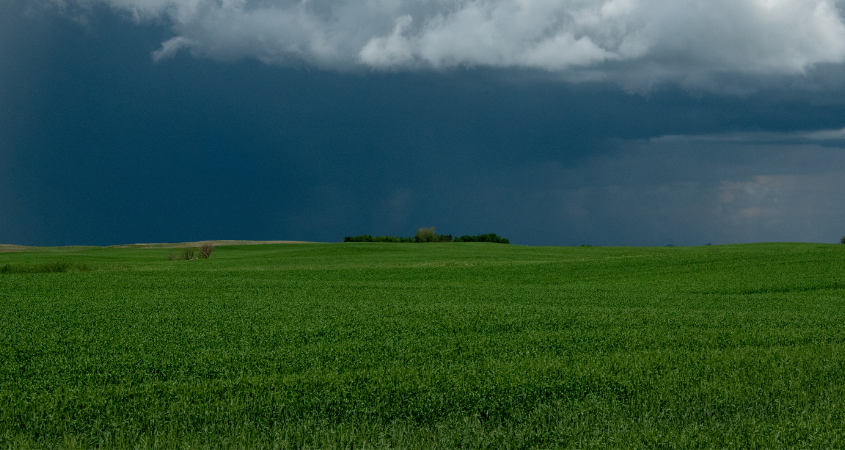
As speculation over an impending El Niño continues to build, growers are advised to plan ahead to ensure that they are not caught out at planting and are in a position to make the most of what could be a high-potential season. Several farmers familiar with the 1997/98 El Niño have told me “Be careful […]
Read More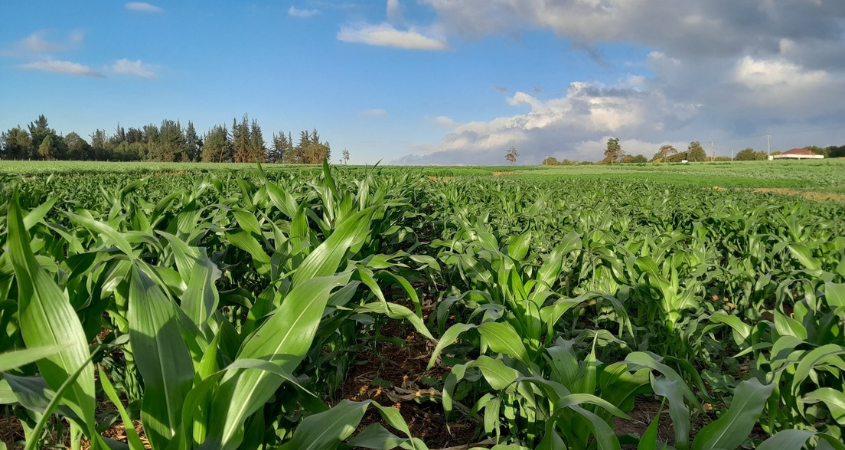
Every time I attend a talk, watch a video, or read an article on crop nutrition, the moment I hear the words “Nutrient X is important for [pollen formation / photosynthesis / insert any other process in the plant]”, I switch off. Whilst it is entirely true that different nutrients perform very different functions within […]
Read More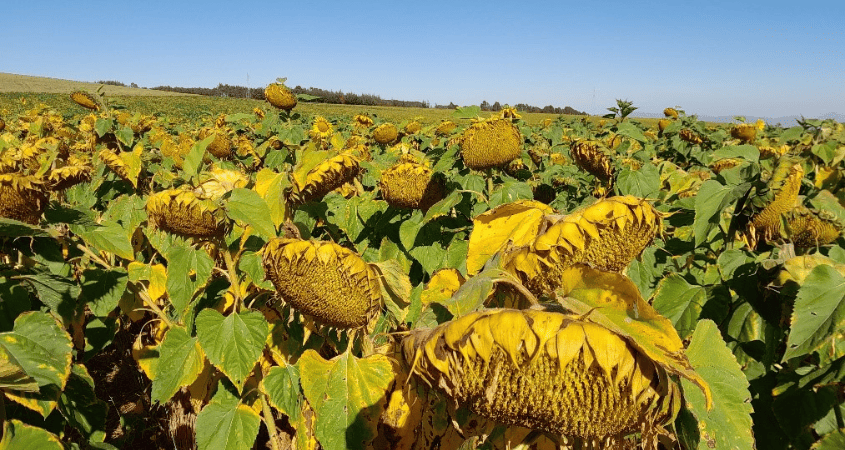
Cash flow, an opportunity to make a bit of profit, improve the soil, and to try out new crops in a lower-risk situation. It may seem a long way off, but these are the reasons why some of the very progressive farmers I work with use off-season crops after maize or wheat. For most farmers […]
Read More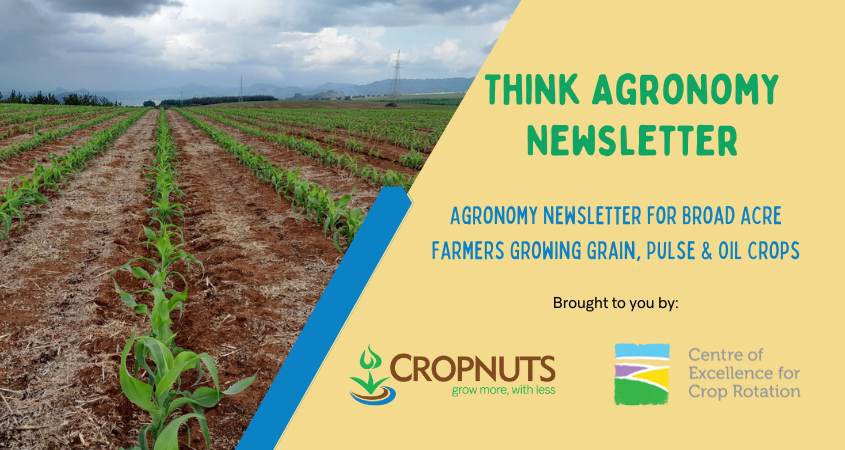
For five years we have tested maize plant populations, and every year we find that the existing advice to plant at 45-50,000 plants/ha does not produce the highest yields or the highest margin – or the best weed control. It is very clear that maize plant populations across the country need a fundamental re-think, and […]
Read More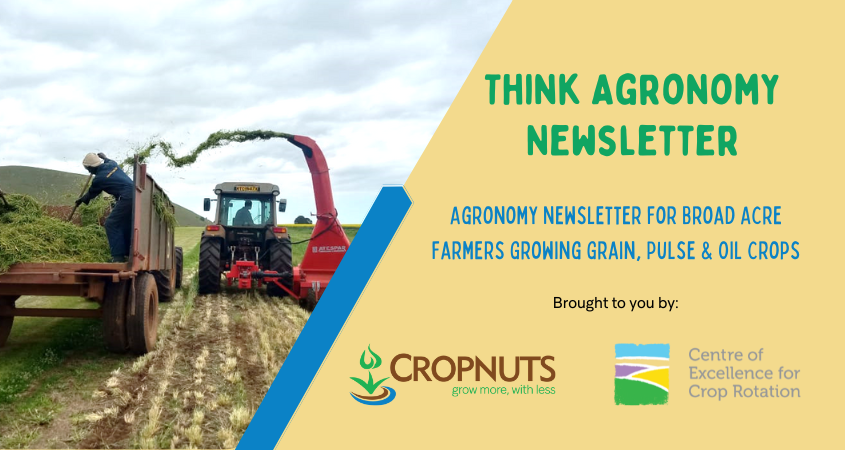
Maize silage Easy to establish and reliable, maize produces a very palatable and high-energy silage provided that it is well chopped and ensiled properly. Typically over 11 Mj of metabolisable energy per kilo, it is a great way of storing crop to feed for livestock later. The main drawbacks are that it needs to be […]
Read More
As we approach the potato planting season, good planning is essential to achieve the best from the crop and maximise your profits. We take a look at the steps to consider: Number 1 is certified seed; you do not need the crop to be held back by diseases such as Blackleg, Black Dot, and Rhizoctonia […]
Read More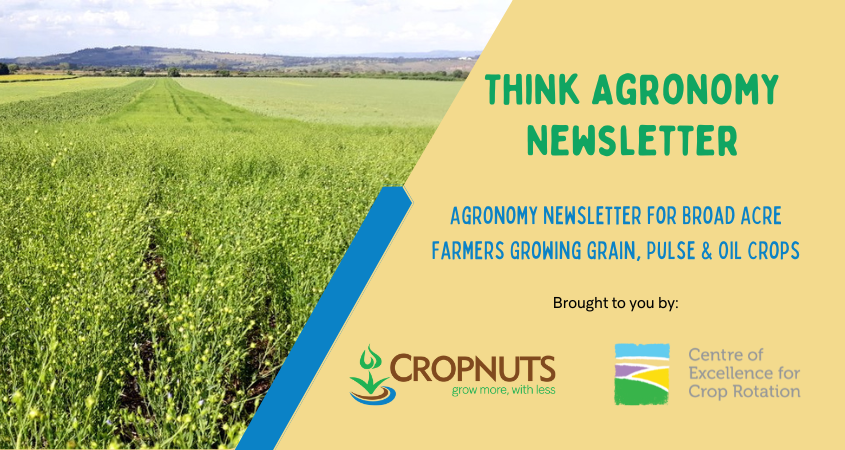
Legumes for a crucial part of the crop rotation on many levels, adding valuable soil nitrogen, reducing root diseases such as Take-all and Fusarium in cereals, improving soil structure and allowing control of grass weeds such as Brome and Ryegrass. Something that I have seen first-hand over the last few years in Kenya is the […]
Read More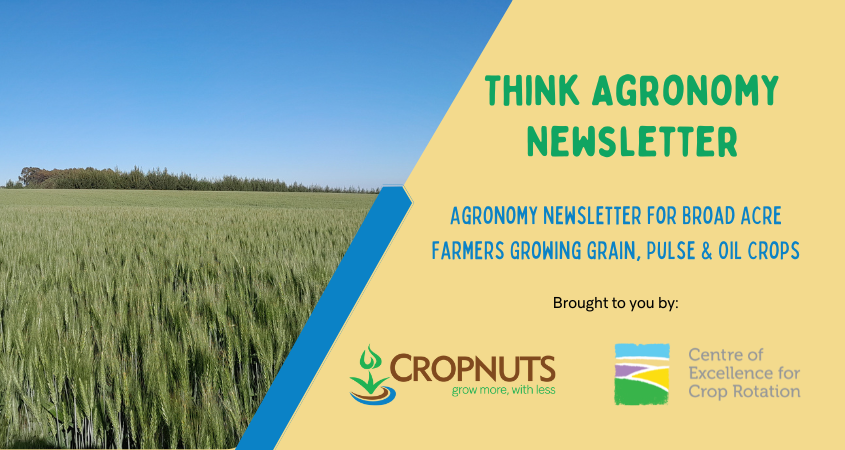
Choosing the right wheat variety is one of the most important steps to growing a profitable and reliable wheat crop. Disease resistance, yield, grain quality, sprouting risk, and many other factors should be taken into consideration so that the chances of achieving a high yield and Grade 1 quality with minimal risk and expenditure on […]
Read More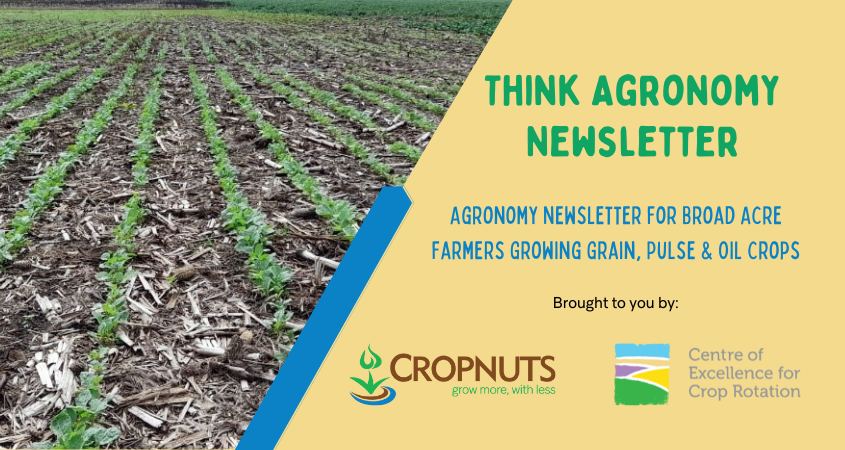
A good crop begins with putting the seed in the ground well, into a good growing environment. This means a well-structured soil with plenty of oxygen so that the roots can explore and grow rapidly in length and access as much soil volume as possible. In turn, this allows the growing crop to access more […]
Read More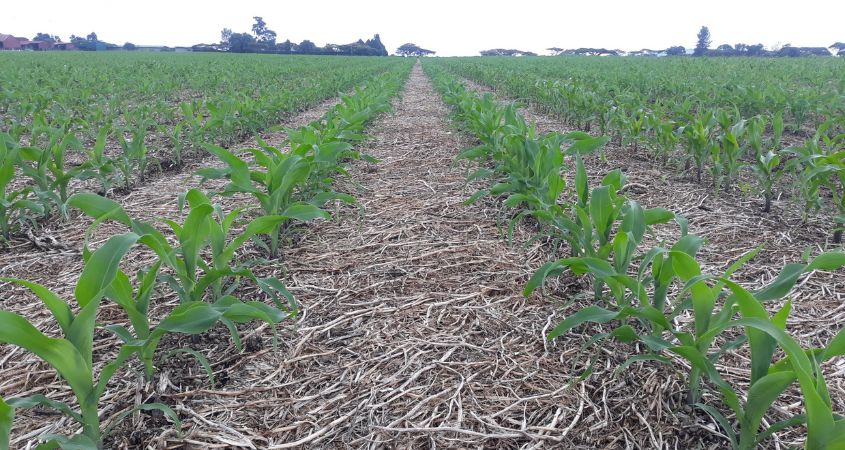
Background information While many approaches, such as nutrient omission trials, have been shown to be beneficial in adjusting fertilizer recommendations such as nitrogen (N) fertilizer-based rates, severe nitrogen deficiencies persist across Kenyan farms. These can be attributed under application of N, or N loss. A large amount of the applied N is lost due to […]
Read More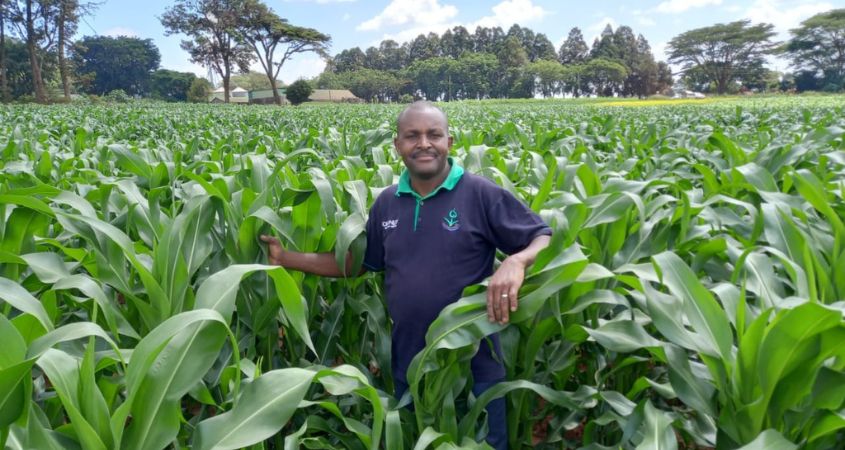
In many places of the world, soil acidity is a substantial constraint to soil productivity. Sodium, aluminum, manganese, and hydrogen ion toxicity, as well as deficits in critical elements such as nitrogen, calcium, magnesium, phosphorus, and molybdenum, all contribute to plant growth suppression. Agricultural management practices have increased shifts in soil pH, raising concerns about […]
Read More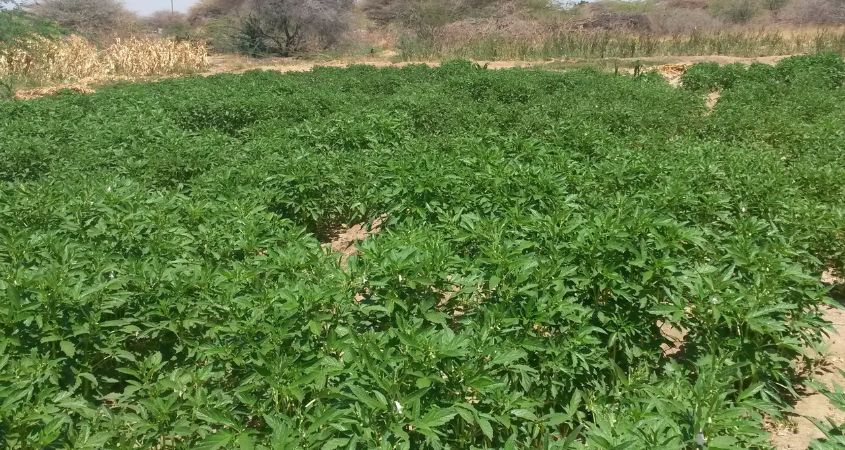
In my last article, we dealt with the many benefits of cover crops and how they can really help improve soil health, soil structure, nutrient availability (especially phosphorous), and water infiltration and moisture holding capacity. These are some of the most important yield destroyers in African soils. Cover cropping, if done properly can really make […]
Read More
Today, September 29, is the International Day of Awareness of Food Loss and Waste. On this day, we take the opportunity to raise awareness of practices and innovations that help reduce food loss and waste and build more resilient food systems. Food loss and waste undermine the sustainability of our food systems. When food is lost […]
Read More
Cover crops are planted to cover the soil rather than for the sole purpose of being harvested. Commercial cropping and removal of crop residue leaves the soil surface bare until the next crop is planted. Bare soils are very fragile and prone to erosion, capping, heating, and degeneration. Bare soils cause floods and dust storms. […]
Read More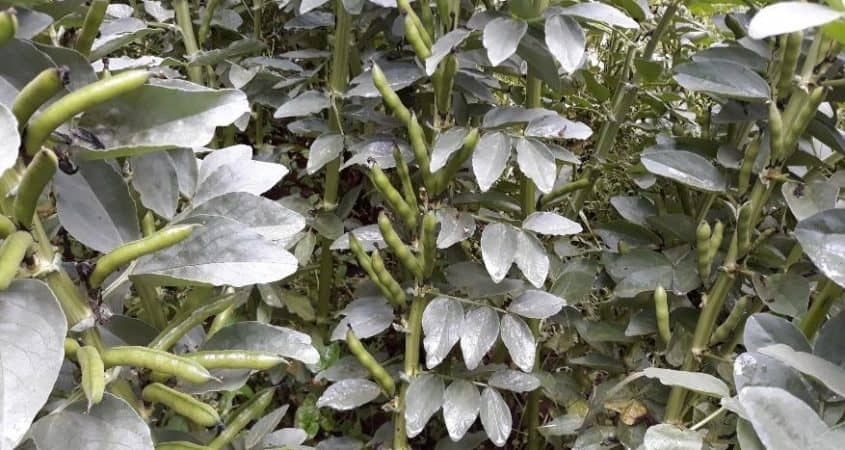
Faba Beans look very exciting on the right soil types. Thinking back to the UK, I was always struck at how Peas and Fabas thrived on alternate soil types, and that may be the case here in Kenya too; where peas are inconsistent, we perhaps need to give fabas a serious go. Peas Faba Beans […]
Read More
I recently purchased a bag of what I thought was lime recently to use on trials, only to discover that it was actually gypsum. I included it in the trial anyway out of curiosity, and it got me thinking, why don’t we think about gypsum more often? Essentially calcium sulphate, gypsum contains two very important […]
Read More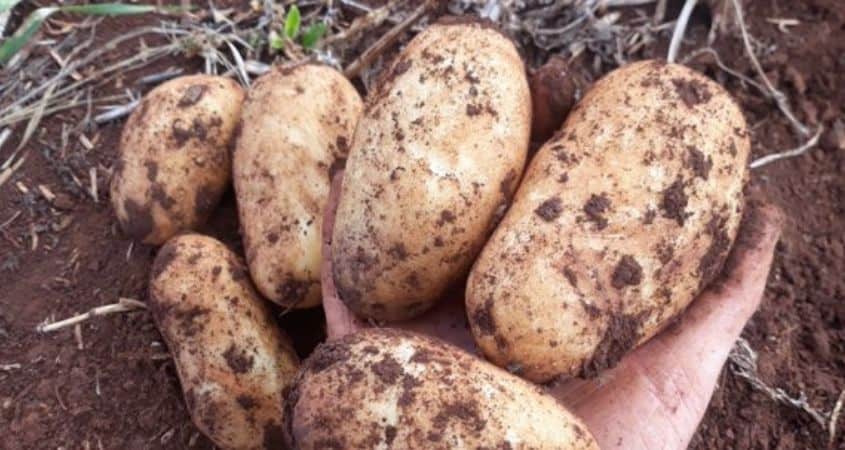
Anyone considering growing potatoes over the coming months should know the benefits and importance of buying clean, certified potato seed variety. This is the best way to ensure the seed is free from Cyst Nematode, Blackleg, and Viruses such as Leaf Roll, all of which can all lead to significant yield or even crop loss. […]
Read More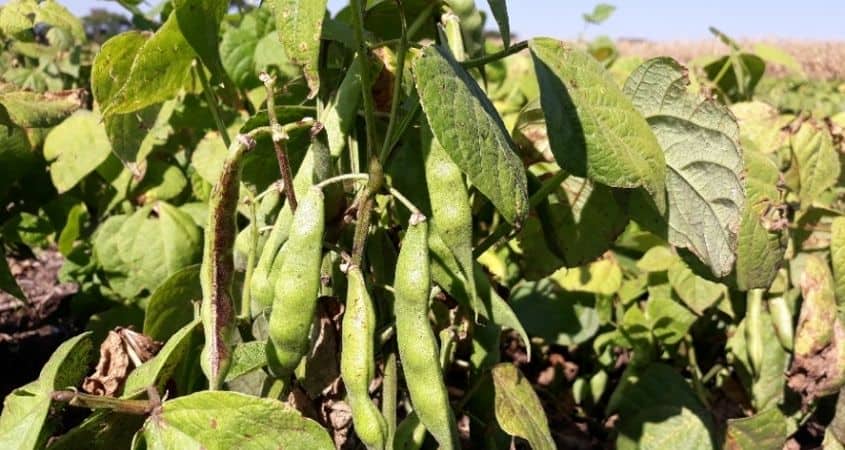
Edible beans such as Rosecoco, Kidney and Yellow Beans can be highly lucrative, but can farmers successfully scale this up to more than just a few acres?
Read More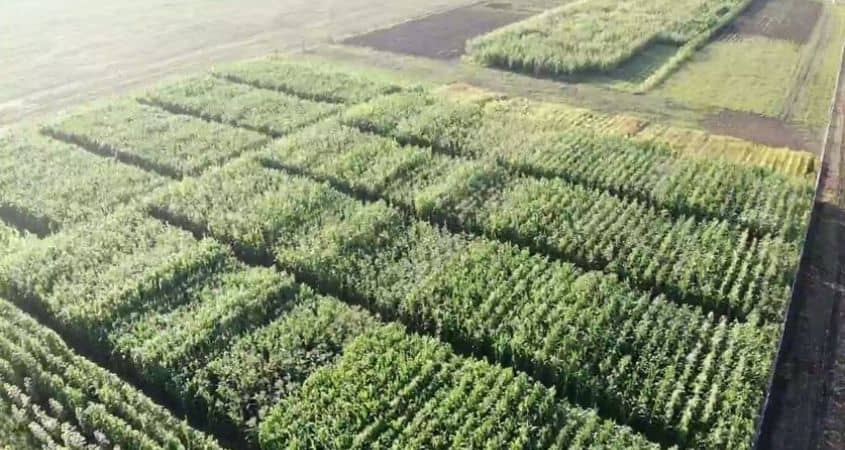
The trials team certainly had high expectations for their Nakuru Maize Variety Trial, but this extraordinary average yield certainly opened their eyes. The Nakuru site is just one of the 8 sites across the country that we’ve test varieties in different climates over the past 12 months. Had we grown the top-yielding variety in this […]
Read More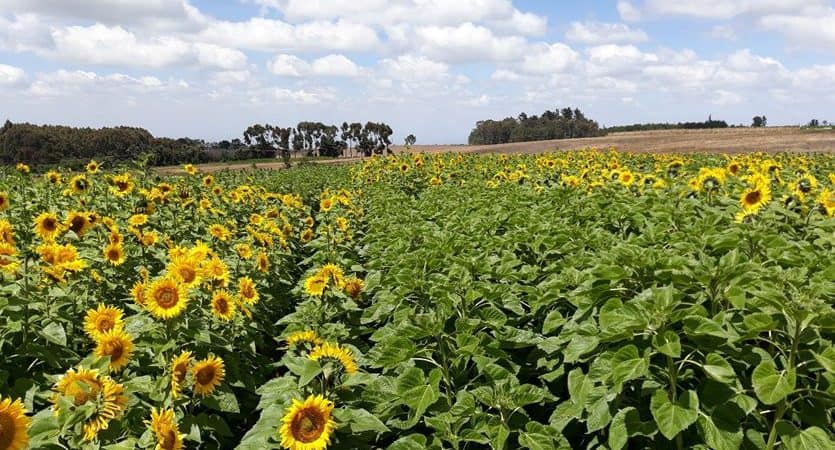
Sunflowers are a fantastic crop for Kenya and can provide extra income for farmers in the off-season as well as many rotational benefits to the soil. But to get top yields it is crucial to check on your herbicides and keep the crop free from weed competition for the first 6-7 weeks. Good planting ensures […]
Read More
For the past three seasons growers have been reporting Fall Armyworm in the tips of cobs from silking right through to maturity, with damage at harvest similar to the photo below. Fall Armyworm numbers have clearly been on the decline since they first arrived in 2017, with some exceptions, and this year they appear to […]
Read More
Bushel weight can make the difference between a profitable crop and one that you can’t even sell. Carrying on from our previous newsletter on how to improve your bushel weight, we take a look at how to get the fungicide program right to maximise your chances of getting a top price for your wheat. Fungicide […]
Read More
When it comes to Potato Farming, Getting weed control right in potatoes is crucial. Furthermore, weeds generally make mechanical harvesting difficult and compete with the crop for nutrients just as the tubers really start bulking. Here, we take a look at some of the weed control herbicides options to receive great yields from Potato Farming: […]
Read More
With malting barley plantings down considerably this year, many farmers will be growing extra acres of wheat to make up for the area lost. But what varieties should you grow to manage the risks of a big wheat area? Robin Still yields very well in our trials, and most importantly of all is consistent across […]
Read More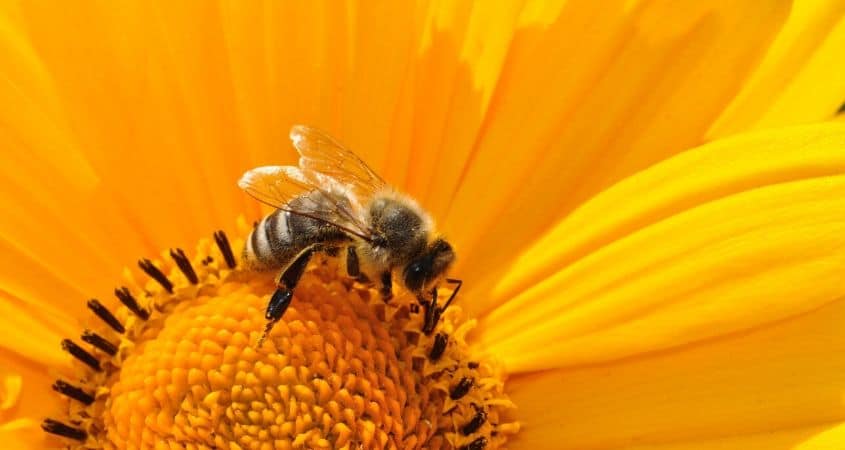
Yields in high value cash & export crops such as coffee, potatoes, avocados, pawpaws, watermelons, oranges, cucumber, passion fruit, etc, hugely depend on the pollination activities carried out by bees, butterflies, birds & other pollinators. Pollinators are essential to the production of many of the micronutrient rich fruits, vegetables, nuts, seeds and oils we eat. […]
Read More
Think Agronomy 15th May 2020 If you set out to collect several hundred Fall Armyworm larvae for an experiment, I can tell you that it is a long task, which seems to take longer each year. Sure, if you look for them they are easy enough to find in fields that have perhaps not received […]
Read More
Soil or land preparation for farming is foundational when growing cereals like maize wheat and barley. In this article we’ll explore the key critical soil requirements for cereal production namely: soil sampling, soil preparation and planting & Deep Nitrogen Testing Soil Sampling Why soil sampling improves profitability How to sample properly Grid vs zone sampling […]
Read More
As crops progress through the growth stages, weed control in maize up to 7-8 leaf stage is crucial to avoid yield loss. There are a number of maize herbicide options on the market, so we explore their strengths and their weak points… Stellar Star Stellar Star is very strong on Gallant Soldier, Datura and Mexican […]
Read More
Knowing your farm cost of production is absolutely crucial for any farming business, and it is an integral part of the advice we give the farmers that we work with at Cropnuts. So every year we take a look through the actual farm input costs of growing different cereal crops (maize wheat & barley) and […]
Read More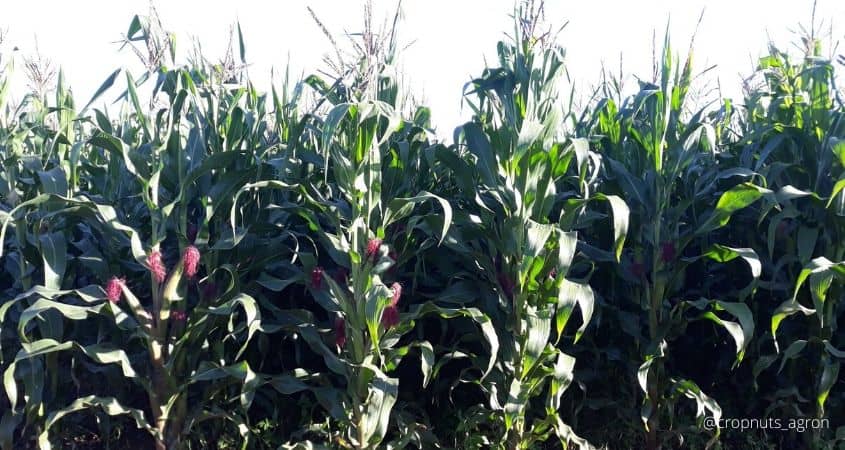
Maize plant population and seed rate comparison data from our maize variety trial sites has been very enlightening. Last week we looked at the results of our Cropnuts Maize Variety Trials in 2019 and highlighted how some maize varieties perform very differently at higher plant populations. Within the Variety Trials last year at every site, […]
Read More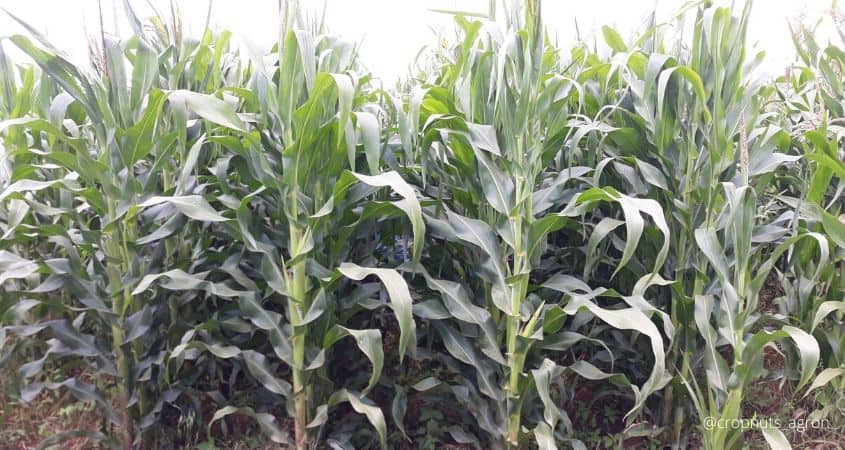
Choosing the right variety is important for any crop, but with a crop like maize where there is just so much choice, where do you start? Last season we carried out four fully replicated maize variety trials in the highland areas; in Timau, Rumuruti, Nakuru and Eldoret to independently compare a range of maize varieties […]
Read More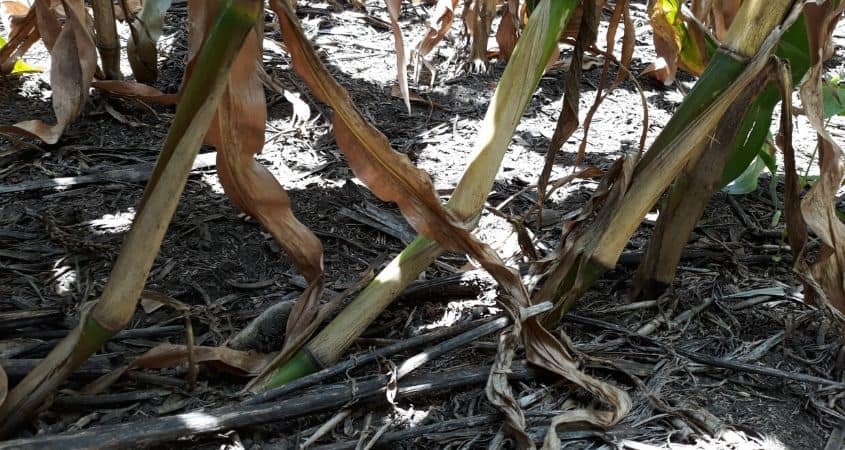
Lodging in cereals is the bending over of the stems near ground level of grain crops. Lodging makes cereal crops very difficult to harvest and can dramatically reduce yield. Causes Of Lodging In Cereals Lodging in cereals is often caused by inadequate standing power of the crop and other external conditions such a storm damage, soil density, disease, sowing […]
Read More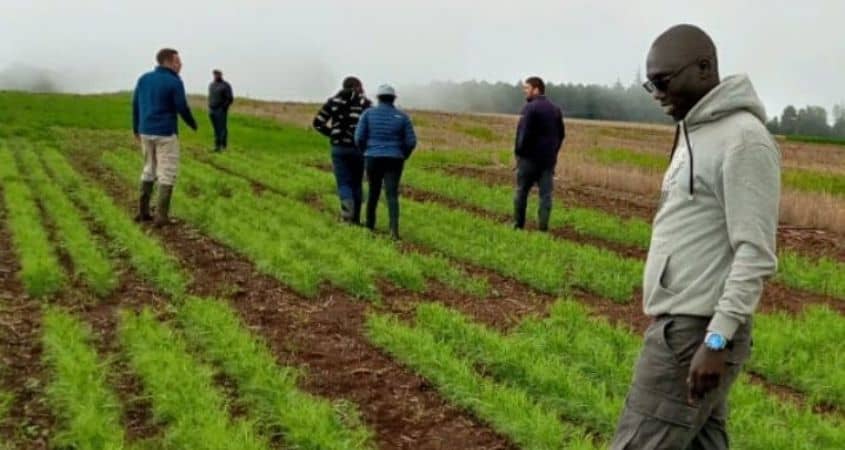
Importance of Molybdenum & Cobalt On Legumes Looking back through some of our legume crop field trials which have focused mainly on peas, the use of molybdenum and cobalt on the seed has consistently shown improvements in nodulation and yield. We know how important molybdenum is on legumes and brassicas in most Kenyan soils so […]
Read More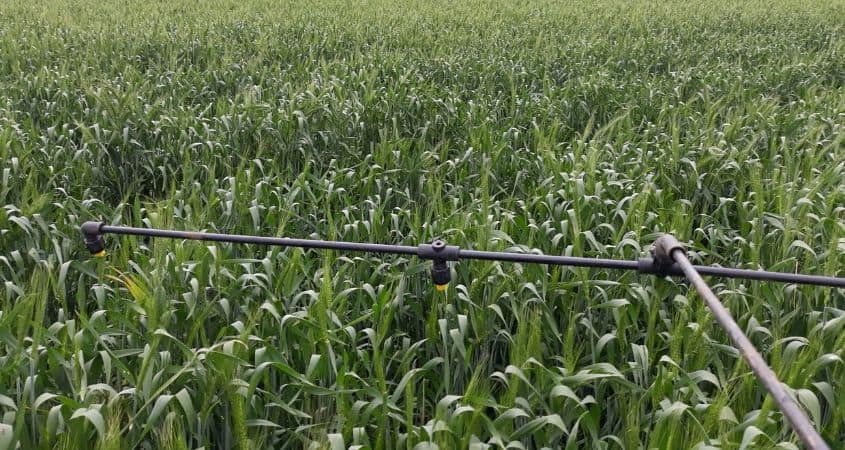
Fungicides are biocidal chemical compounds used to kill parasitic fungi or their spores. Fungi can cause serious damage in agriculture, resulting in critical losses of yield, quality, and profit. Fungicide Classification Fungicides are mostly known by their brand names. But when you want to get scientific about farming, it’s important to understand a bit more about which ones to use in different crops, and […]
Read More
Fall Armyworm control methods discussed in this article are tested by Cropnuts independent Agronomy team. The recommendations given in this article are independent and are not biased to any fall armyworm insecticide company in any way. Fall Armyworm (FAW) or Spodoptera frugiperda , is a new emerging invasive pest that is wreaking havoc in Kenya and many […]
Read More
Think Agronomy is our new, regular broadcast keeping arable farmers updated with tips, tricks and knowledge from our experienced team of independent agronomists. To subscribe to receive our Agronomy newsletters straight to your email inbox, please click here Farmers of every crop type including livestock are being urgent to make plans to deal with the potential locust plague […]
Read More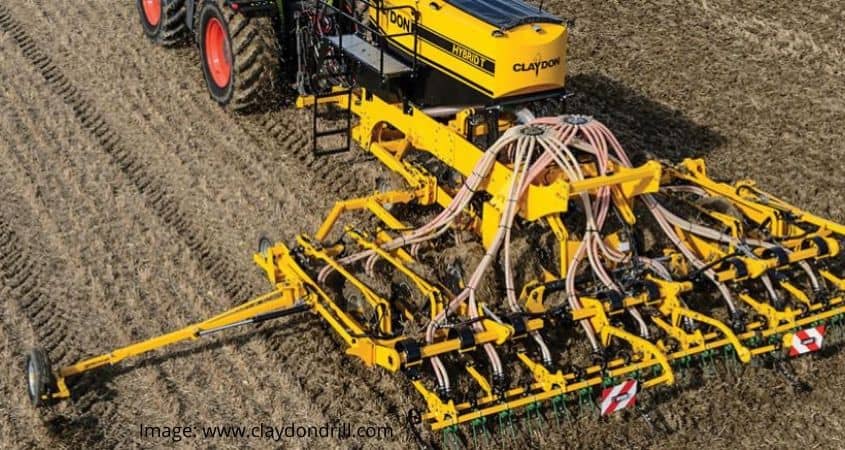
Continuing our series looking at planters, this interesting offering from Claydon is particularly relevant to many farming situations in Kenya… Claydon uses a leading tine to open the soil ahead of a separate seeding tine, meaning that light surface compaction – from livestock grazing in the off-season for example – can be removed at seeding […]
Read More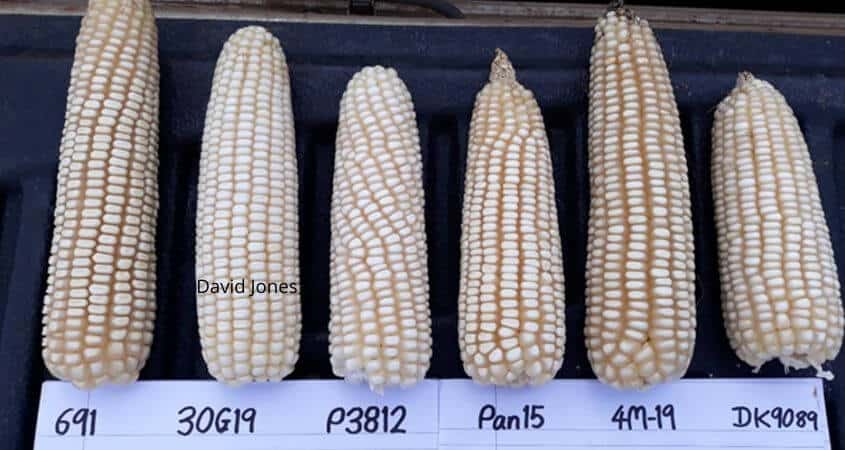
Maize varieties grown in Kenya, their strong attributes and their vulnerabilities, especially to certain pests & diseases as tested in our maize crop trials. Maize Variety List Pannar 691 Maize Variety Still arguably the standard for yield despite being released in 2001. In most highland areas it requires 160 days to maturity. Good disease resistance […]
Read More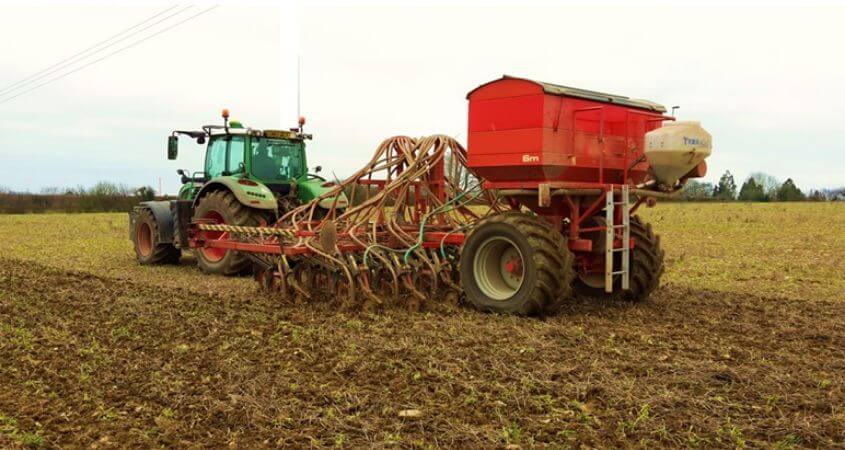
In this issue of #ThinkAgronomy we make comments on 3 crucial topics trending among broad acre farmers right now There seems to be a lot of conversation recently about seeders, so over the next few weeks we will be looking at a different manufacturer each week. First up is an interesting tine seeder from the […]
Read More